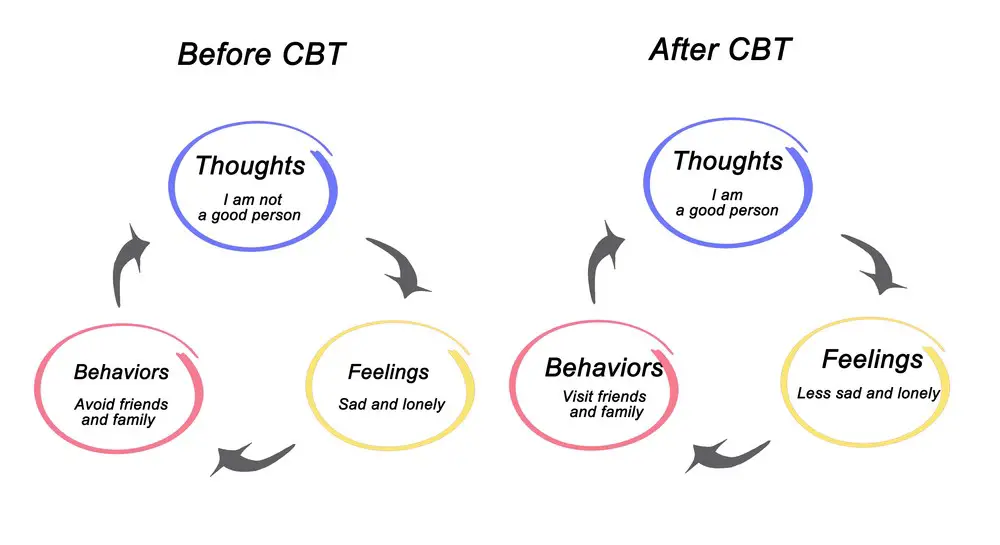As a BetterHelp affiliate, we receive compensation from BetterHelp if you purchase products or services through the links provided
An overwhelming fear of abandonment that prevents you from developing healthy relationships is unwholesome. However, it is possible to overcome these fears. The fear of abandonment is often unwarranted, and you may fear physical or emotional rejection.
Loss, trauma, and other developmental experiences can lead to this complex phenomenon. Therefore, when a person faces interruptions during their normal development at any stage of their lives, including within a relationship or other life experiences, it can affect their cognitive or emotional abilities, leaving them with the fear of abandonment.
Despite being one of the most common and overwhelming fears, the fear of abandonment is not an official phobia. However, the dread sufferers feel often leads to behaviors that affect their relationships, often ending with the abandonment they fear.
Causes of Fear of Abandonment
Healthy human development results when a person’s emotional and physical needs are met, but several events can cause an interruption to the reassurance humans require at any age.
Some contributory issues leading to the fear of abandonment include:
- Physical, sexual, and emotional abuse can lead to abandonment fears, just like it can lead to other mental health issues.
- Abandonment, neglect, or emotional distance from a parent or caregiver is another cause.
- Another contributing factor is the loss of a relationship caused by the unexpected death of a loved one or other sudden changes in circumstances, including divorce.
- Object constancy also forms part of the previous cause and relates to how a person transitions to changing circumstances, for example, parenthood and other major transitions. Read this article in Very Well Mind about object relations theory and the fear of abandonment linked to universal myths.
- Poverty can lead to a scarcity mindset in several areas, including fears of limited emotional resources.
- People with mental health conditions like separation anxiety or borderline personality disorder often fear abandonment.

Symptoms of Fear of Abandonment
Some symptoms or behaviors in fear of abandonment are more common, with some being more prominent in some people than others. These symptoms may include:
Relationship cycling through relationships – The person engages in frequent shallow relationships, often caused by a fear of intimacy. In these cases, the person finds a reason to leave a relationship before the other person abandons them.
Sabotaging of relationships – Some people may present irrational behavior to push their way out of a relationship, ensuring they won’t feel hurt if the other person leaves.
Clinging to an unhealthy relationship – In some cases, people with abandonment issues may cling to an unhealthy relationship despite wanting to leave because the fear of being alone prevails.
Requiring constant reassurance – Some people will continually demand emotional guarantees from a friend or partner by having them make broad statements like “I will always love you” or “I’ll always be here.” However, when making these statements, they often tell their friend or partner they are lying.
Abandonment issue symptoms in children
It is natural for children with healthy emotional attachments to become upset when left by their parents, even for a short time. However, the following signs may indicate an unnatural fear of abandonment:
- When separation anxiety leads to extreme anxiousness when the child’s parents need to go somewhere planned
- When the child overreacts or panics when it doesn’t see its parents
- Intense fear of being left alone or stepping out of a room.
Treating Fear of Abandonment
Struggling with low self-esteem and the feelings of insecurity that accompany abandonment issues can feel challenging. However, the good news is that there are several ways to heal from the trauma and overcome these fears. The method that will work best depends on the level of each individual’s fear of abandonment.

1. Therapy
Several types of therapy can provide the guidance required to identify, face, and process the cause of your fear of abandonment. These include:
- Cognitive behavioral therapy (CBT) uses a process to help positive thoughts replace negative ones.
- Play therapy for children includes using games and toys.
- Attachment-based therapy entails building a strong connection between the therapist and the patient.
2. Self-Realization
Learning more about your anxieties and behaviors in your relationships and how to take control of them is another way to overcome the fear of abandonment. There are several ways to develop self-realization, including meditation. The process takes time, commitment, and honesty when confronting and managing your thoughts and emotions.
3. Support Groups
Many people who fear abandonment often struggle with extreme feelings of being alone. Connecting with others with the same struggle allows them to understand their feelings and find ways to deal with them. Some people prefer to join local support groups, but online support groups are also available.
How to Help a Loved One with Fear of Abandonment
When faced with a situation where a person you love fears abandonment, you can use several techniques to show them you care.
Therefore, when you notice a conversation has become highly emotional without getting anywhere, pause it by stepping away for a few hours. However, don’t leave without telling them why you have paused the conversation, where you’re going, and when you will return because you may cause them more distress. Resume the conversation when returning from a less emotional place.
Another way to help is to acknowledge the fear of abandonment and support your loved one. Validation does not mean agreeing with the person or judging them. Instead, it’s about showing them compassion and building trust.
Healthline suggests the following six-level approach:
- Be present by actively listening
- Reflect by summarizing their feelings without being judgmental
- Being present and reflecting allows you to help identify emotions that they may have difficulty expressing
- Understanding the history that triggers their fear of abandonment creates a more profound acknowledgment of their fears.
- Make them know that these fears are normal in people with a similar history
- Radical genuineness entails sharing their fears as your own.
Here are a few phrases to avoid at all times because they don’t help:
- “It’s fine; just let it go.”
- “Everything occurs for a reason.”
- “That never happened to you.”
- “Why make such a big deal out of nothing?”
- “You’re lucky because things could be much worse.”
Finally, people who fear abandonment may also use emotional bait by making ambiguous statements or using body language or facial expressions. Sometimes when you ask them to open up, they won’t talk. If they tell you nothing is wrong and don’t want to talk, it’s sometimes their way of testing you.
Making progress may feel like an uphill battle, but tell them how their actions make you feel. Your honesty may make a difference in the progress you can achieve.

Helping Your Child with Fear of Abandonment
If you notice any abandonment anxiety in your child, the sooner you get help, the faster they can develop secure relationships.
Therefore, please seek professional help because children often feel uncomfortable talking to their parents or teachers.
Sometimes children fear their parents may become upset if they express their feelings. Always encourage your children to say everything they feel openly and acknowledge these feelings by giving them validation. In other words, it’s fine to feel like that.
Tips to help your child with fear of abandonment include:
· Try to provide comfort and security.
· Offer reassurance that you will always be there for them.
· Involve them in activities, help them make friends, and join groups or clubs.
· Show them affection and love through hugs, kisses, and words of affirmation.

Final Take
Treatment for abandonment issues helps individuals understand the underlying problems and provide the coping mechanisms to help them manage their anxieties and have healthy relationships. People with a mild fear of abandonment may not require therapy, but it’s important in all cases to work toward feeling a sense of belonging, not just to one person but to a community that will help build their self-confidence.
- 3 Ways Wearing a Hat Can Help Lower Your Stress Levels - April 19, 2025
- Breaking the Silence: Why Men’s Mental Health Matters More Than Ever - April 15, 2025
- How to Transform a Home’s Patio Space into a Relaxing Space - March 23, 2025



